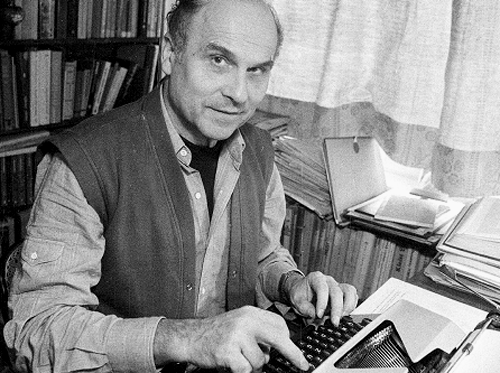
Had an evening to spare today so decided I’d treat myself to a new book, knowing full well it’d end up on the pile of other books I’m yet to read. But, for once, it didn’t. One five-hour sitting (a beer an hour obviously) and 144 pages later and I was blown away by yet another Ryszard Kapuscinski book: Another Day of Life. And while charging through the pages, I realised that much of what he wrote about conflict and journalism in Angola over 30 years ago is still relevant.
His description of a ‘green soldier’, for instance, reminded me of a British Lieutenant Colonel’s observation about young American soldiers in Iraq on their first tour of duty:
A green soldier fears everything. When he is transported to the front, he thinks death is watching him on every side. Every shot is aimed at him. He doesn’t know how to judge the range or direction of fire, so he shoots anywhere, as long as he can shoot a lot without stopping. He is not hurting the enemy, he is killing his own terror. He is stifling the dread that paralyzes a man and prevents him from thinking. Or rather, the dread that doesn’t let him think about what is happening around him, about how to win the battle that his unit is engaged in, because at that moment he has a more important battle to win: he must win the war with his own fear.
On the challenge journalists face in capturing the horror of war:
The world contemplates the great spectacle of combat and death, which is difficult for it to imagine in the end, because the image of war is not communicable – not by the pen, or the voice, or the camera. War is a reality only to those stuck in its bloody, dreadful, filthy insides. To others, it is pages in a book, pictures on a screen, nothing more.
And, even as early as 1975, on the perils of ‘parachute journalism’:
What stories the world press publishes! I read many of the dispatches sent from Luanda in those days. I admired the opulence of human fantasy. But I also understood my colleagues’ predicament. The editor sends a reporter to a country that is fascinating to the entire world. Such a journey costs a lot of money. The world is waiting for a great story, a scoop, a sensational narrative written under a hail of bullets. The special correspondent flies out to Luanda. He is taken to the hotel. He gets a room, shaves, and changes his shirt. He is ready and goes out immediately to look for the fighting.
After several hours he announces that he’s beating his head against a wall –
He can’t do anything.
Angola betrays no interest in his presence. The telephone doesn’t answer, or if it does it answers in Portuguese, a language he doesn’t understand. If he has enough strength and endurance, he can make the journey on foot to Government Palace. There he meets Elvira, a moon-faced typist who will smile but knows nothing and isn’t telling what she does know. He might meet young Costa, who will answer all questions by shaking his head and remaining silent. Make the trip to MPLA headquarters? That’s an all-day journey, and besides, the guard won’t let him through the gate. Go to President Neto! But how? Nobody will say where the President lives. Ride to the front. To what front? You can’t travel outside Luanda; it’s a closed city. A group of Frenchman acquired a car and decided, without looking into anything, to drive to the northern front. They were stopped at the first checkpoint and delivered straight to the airport. See a Cuban! But how? They are nowhere to be seen. Is Luso in MPLA hands? Because Savimbi says that UNITA holds it. Who knows? There has been no contact with that city for a long time. It’s essential to find out exactly where the front is. Where the front is? Who could know that? Even at the headquarters, nobody is sure.
There are some remaining sources of information: Dona Cartagina, Oscar, and Felix. Dona Cartagina is now busy cleaning and has no time for politics. In any case, she speaks only Portuguese and it’s hard to communicate with her. Oscar invariably repeats MPLA slogans: A Vitória é certa! Victory is certain. But that is skimpy and, moreover, not exactly what everyone is looking for. Felix gives the most matter-of-fact and truthful answers. Asked about the situation, he answers tersely: Confusāo.
And, lastly, on his mantra as a reporter:
As I see it, it’s wrong to write about people without living through at least a little of what they are living through.




Sem comentários:
Enviar um comentário